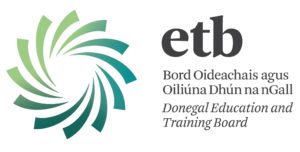Donegal ETB schools are multi denominational State schools and as such recognise the importance of respect, equality and well-being for all students in an inclusive and supportive environment. Section 9 (c) of the Education Act (1998) states that schools shall “promote the moral, spiritual, social and personal development of students… having regard to the characteristic spirit of the school”. Therefore, Religious Education is valued as a key subject in Donegal ETB schools.
The Department of Education and Skills recently issued a circular letter (CL 13/2018) outlining changes to the arrangements for students who do not wish to participate in religious instruction in ETB and Community Post Primary Schools. The Department of Education circular will require schools to consult with parents – or pupils over the age of 18 – over the option of studying alternative subjects. However, additional resources for teacher allocation have not issued to schools from the Department of Education and Skills to provide this option. Donegal ETB and Education and Training Boards Ireland (ETBI) have both written to the Department of Education and Skills seeking the necessary resources to implement the circular. Also, at the Teachers’ Union of Ireland (TUI) National Congress last week a motion was passed unanimously advising the Department of Education and Skills that TUI members, including Principal Teacher members, will not comply with the Circular Letter until such time that sufficient resources are provided.
Donegal ETB, in promoting the characteristic spirit of its schools highlights the importance of distinguishing between the terms ‘Religious Education’ and ‘Religious Instruction’. Religious Instruction is a term used in Ireland to indicate instruction in accordance with the rites, practice and teaching of a particular religion or denomination for pupils of that faith tradition. Religious Education as a subject in Donegal ETB schools is open to all pupils regardless of their commitment to any particular religion or worldview and seeks to contribute to the spiritual and moral development of all students. Donegal ETB supports the provision of the State Religious Education curriculum as developed by the NCCA as it:
- underpins the multi denominational and inclusive ethos of our schools
- contributes to the holistic development of students and underpins many of the learning intentions and objectives of both the Junior and Senior cycle curriculum.
- offers students the opportunity to engage with religious traditions and secular worldviews. It allows them to engage positively and respectively with all of the students in the school community and outside in the pluralist society in which they will be future citizens.
- affords students the time for much needed reflection in a world that is becoming increasingly challenging and complex for them and therefore is essential to their overall well – being
- seeks to contribute to the spiritual and moral development of all our students
Donegal ETB also recognises the right of parents, or students over 18, attending our schools to withdraw from Religious Education. Donegal ETB is also cognisant of the sources from which these rights derive (listed below) and as such why these rights must be respected by ETB schools.
| Article 44.2.4 – guarantees that children attending publicly-funded schools may not be compelled to attend religious instruction classes.
Article 42.1 – recognises the inalienable rights of parents to provide for their children’s religious and moral education. Education Act 1998 – Section 30 Section 30 (2)(e) – provides for a parent to withdraw their child from any subject being provided by a school, as part of the curriculum, that is contrary to the conscience of the parent or in the case of a student who has reached the age of 18 years, the student. |
Donegal ETB’s Chief Executive, Ms Anne McHugh expressed her support of the circular, subject to the provision of the necessary resources for implementation in full, ‘Donegal ETB schools provide an inclusive education in multi denominational settings open to all pupils regardless of their commitment to any particular religion or worldview and our primary objective is to contribute to the spiritual and moral development of all our students. Religious Education enables students to engage positively and respectively with all of the students in the school community and is representative of the pluralist society in which they will be future adults and active citizens.’

 Gaeilge
Gaeilge
